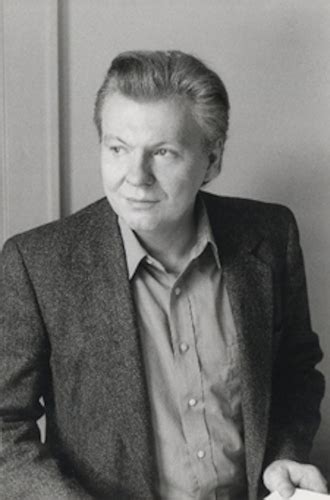A Quote by Grover Cleveland
I mistake the American people if they favor the odious doctrine that there is no such thing as international morality; that there is one law for a strong nation and another for a weak one.
Related Quotes
Make no mistake about it: the labeling of someone's language as 'sexist' involves a political judgment and implies the desirability of a particular sociological doctrine. One may be in favor of that doctrine (as I believe I am) but it is quite another matter to force writers by edicts and censorship into accepting it.
All attempts at law, all religion, all ethical norms might be nothing more than attempts by the weak to restrain the strong. Then, within the law, arise the new strong, who subvert the law for their own ends of power and family interest, leaving the old strong outside their circle to pursue the waiting possibilities which they call crime. The weak, the cowardly, the decent ones, live between these groups.
Western civilization has been at war with tribalism for 3,000 years. And that war was brought to the New World by the English colonists. A very early point in American law Chief Justice John Marshall is asked to decide the status of Indian tribes. And what he does. He calls them savages who lack the same rights as the white people who came over here, the Europeans, and colonized their land under this, what many Americans might regard as an obscure legal doctrine called the Doctrine of Discovery. But it is still the most important doctrine in American constitutional law.
The idea of self-determination was gradually given credibility by international law, and it lent strong emancipatory support to movements of liberation struggling against a West-centric world order. Latin American countries used international law creatively, both to limit the protection of foreign investment by establishing the primacy of national sovereignty in relation to natural resources, and by building support for the norm on non-intervention in internal affairs.
Whenever any American's life is taken by another American unnecessarily - whether it is done in the name of the law or in the defiance of the law, by one man or a gang, in cold blood or in passion, in an attack of violence or in response to violence - whenever we tear at the fabric of the life which another man has painfully and clumsily woven for himself and his children, the whole nation is degraded.
The thing that impressed me then as now about New York… was the sharp, and at the same time immense, contrast it showed between the dull and the shrewd, the strong and the weak, the rich and the poor, the wise and the ignorant… the strong, or those who ultimately dominated, were so very strong, and the weak so very, very weak - and so very, very many.
The law is equal before all of us; but we are not all equal before the law. Virtually there is one law for the rich and another for the poor, one law for the cunning and another for the simple, one law for the forceful and another for the feeble, one law for the ignorant and another for the learned, one law for the brave and another for the timid, and within family limits one law for the parent and no law at all for the child.
Nature's law says that the strong must prevent the weak from living, but only in a newspaper article or textbook can this be packaged into a comprehensible thought. In the soup of everyday life, in the mixture of minutia from which human relations are woven, it is not a law. It is a logical incongruity when both strong and weak fall victim to their mutual relations, unconsciously subservient to some unknown guiding power that stands outside of life, irrelevant to man.
I think Donald Trump is moving to - and will continue to move to the economic argument, as to why what he's doing is - represents a commitment to stand up to big business, to international corporations who favor more immigration and lower wages - that's what they favor - and a defense of the interest of the American people who go to work every day.
All students, members of the faculty, and public officials in both Mississippi and the Nation will be able, it is hoped, to return to their normal activities with full confidence in the integrity of American law. This is as it should be, for our Nation is founded on the principle that observance of the law is the eternal safeguard of liberty and defiance of the law is the surest road to tyranny.

































